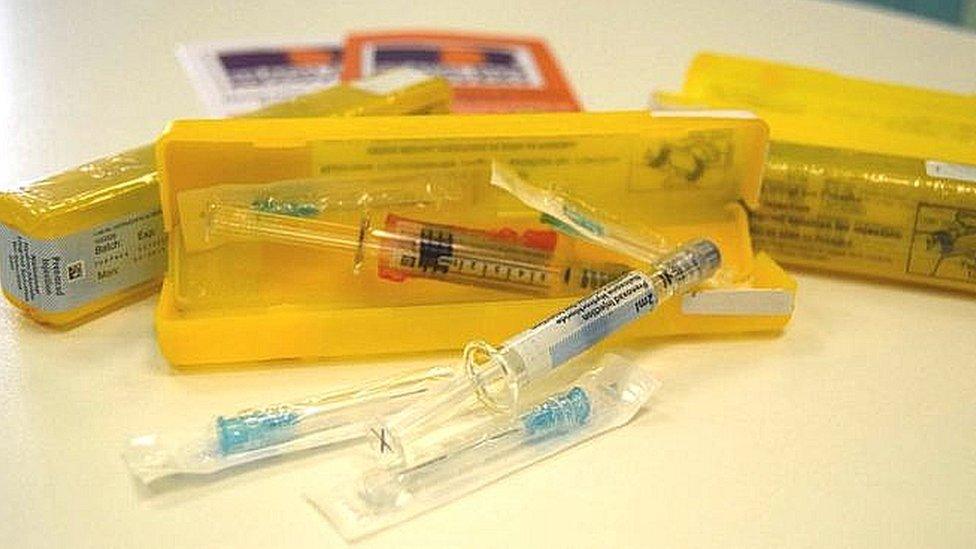Police Scotland officers set to trial drug overdose spray
- Published
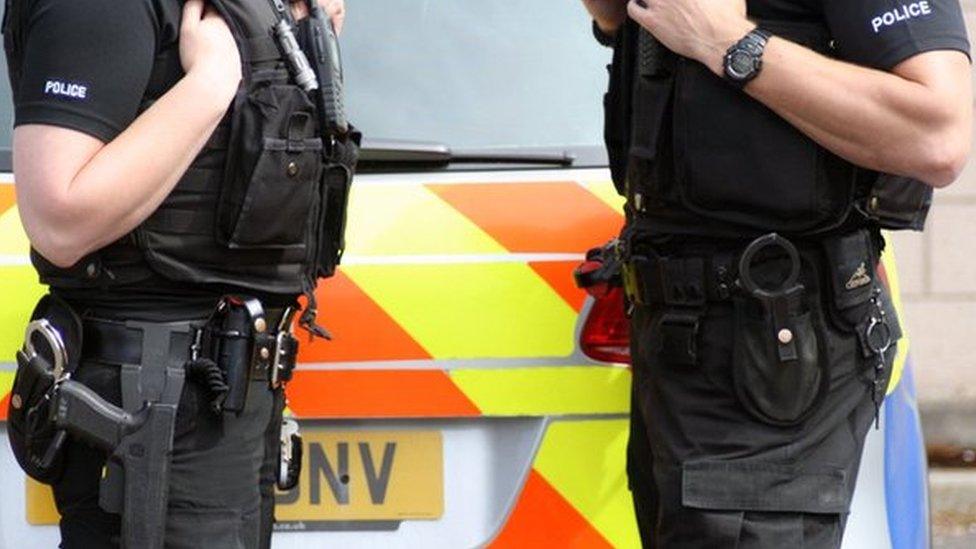
The forces hope to secure approval for a trial which would see patrol officers carry Naloxone
Police Scotland officers could be sent on patrol with a life-saving nasal spray to treat victims of drug overdose.
The move comes after it emerged paramedics are to train families of heroin users how to use Naloxone kits.
Last year, the number of drug-related deaths in Scotland soared to 1,187.
The country's drug death rate is nearly three times that of the UK as a whole, and is higher than that reported for any other EU country.
Assistant Chief Constable Gary Ritchie will chair a delivery steering group with a range of partners, including the Scottish Drugs Death Task Force, police staff associations and the NHS.
The group will develop proposals for officers to carry Naloxone while on patrol.
The move would then require the approval of the force executive before it is trialled by a "small number" of officers on a voluntary basis.
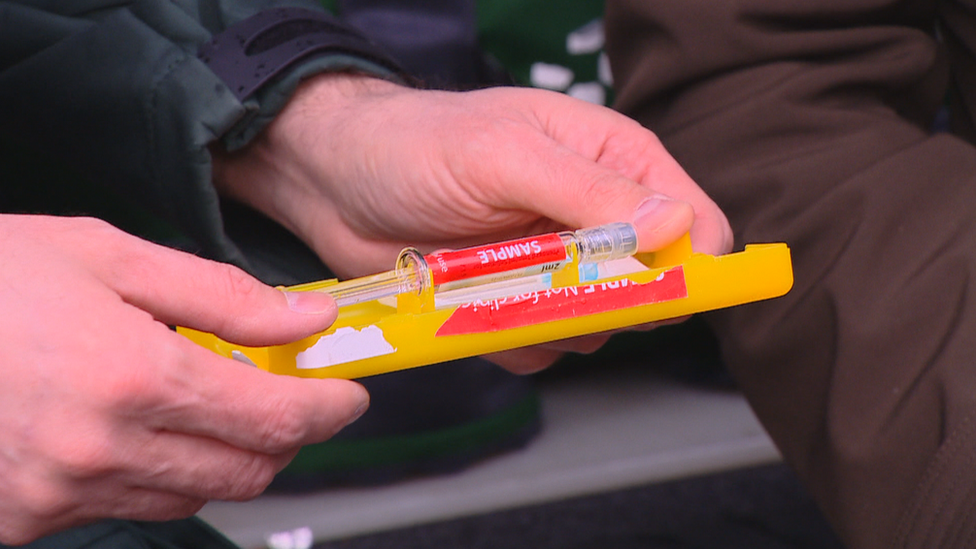
Paramedics can train people in the use of the kits
Naloxone, administered as a nasal spray, is a medication that can reverse the effects of a drug-related overdose.
Results of the trials will provide evidence to help the force consider whether it should be rolled out further.
Assistant Chief Constable Ritchie said: "Scotland has the worst rate of drug-related deaths per head of population in Europe and the devastating impact that drugs have on individuals, their families and wider communities is fully acknowledged by Police Scotland.
"Proposals for this Test of Change are being undertaken with a view to providing an evidence base that will help the police service and partners determine whether police officers carrying Naloxone can help us to tackle the harm caused by drugs."
The ambulance initiative is part of a pilot scheme funded by the Scottish government taskforce set up last year to tackle the rising number of drug deaths.
Naloxone kits are already widely available in communities, with about 46,000 supplied between 2011 and 2018.
The drug works by temporarily reversing the effects of opioid overdoses.
Intra-muscular injection
Last year paramedics in Scotland used more than 5,000 doses of Naloxone, the Scottish Ambulance Service said.
Despite this, 537 people died from overdoses of heroin and morphine in 2018.
Naloxone is an intra-muscular injection, meaning it can be injected straight into a person's arm or leg.
The single injection of the antidote works by disabling the opiate receptors in the body, blocking the effects of the opiate drugs taken.
Drugs such as morphine and heroin are considered opioids.
In 2010, Scotland became the first country in the world to introduce a national Naloxone programme.
The programme is centrally co-ordinated and funded by the Scottish government, and administered locally by the Scottish Drugs Forum, alcohol and drug partnerships and health boards.
Later this month the Scottish government is to hold a drugs summit in Glasgow, the day before a UK government conference on the same issue in the same venue.
- Published29 January 2020
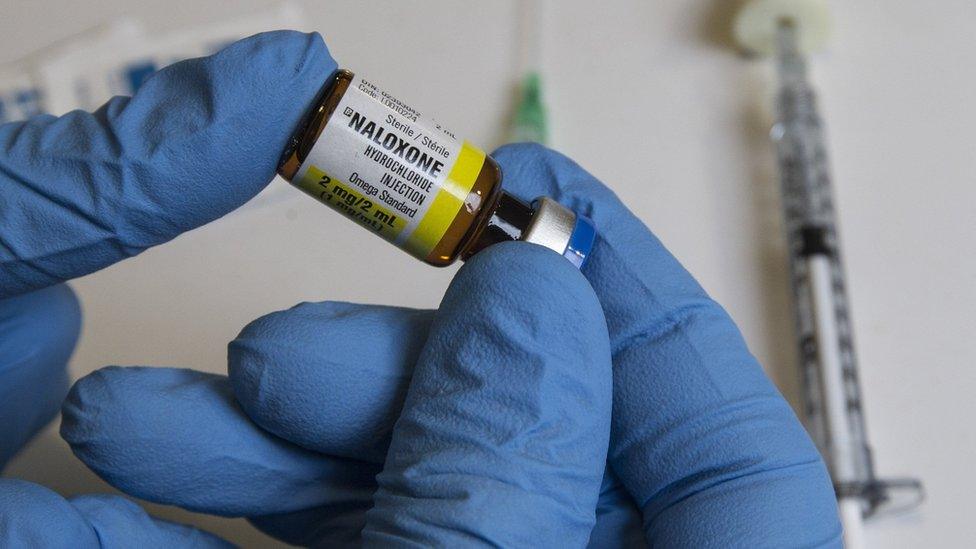
- Published16 July 2019
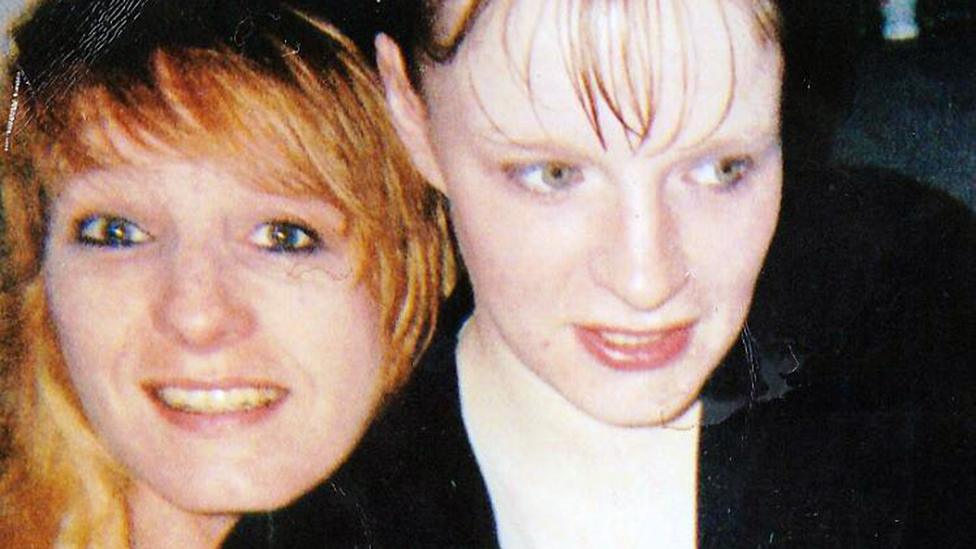
- Published25 October 2016
